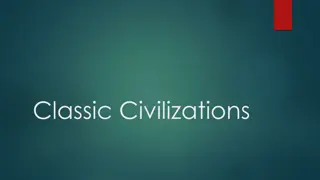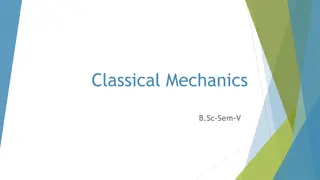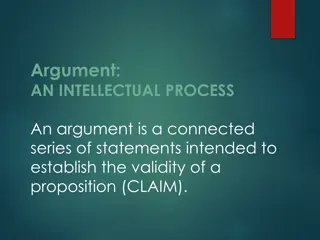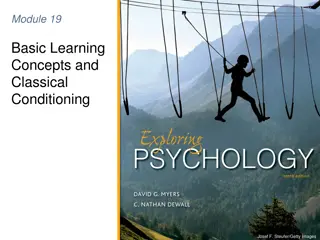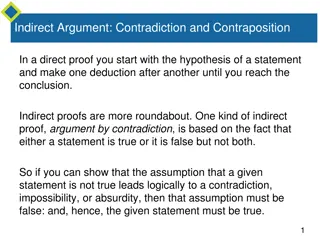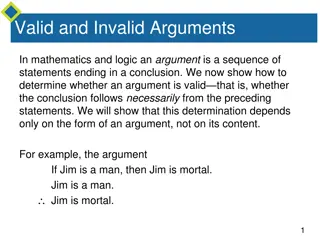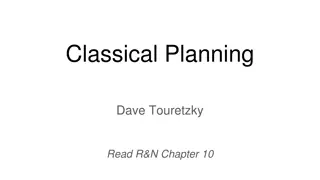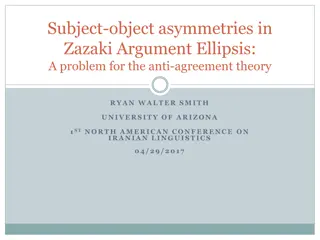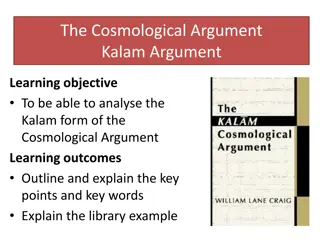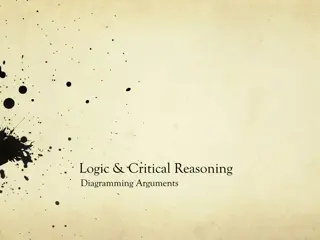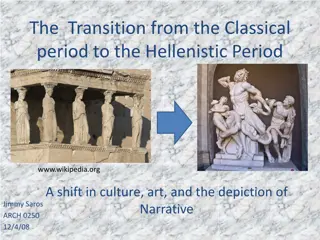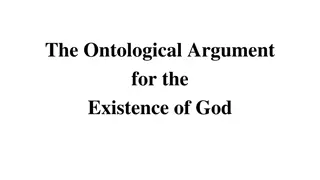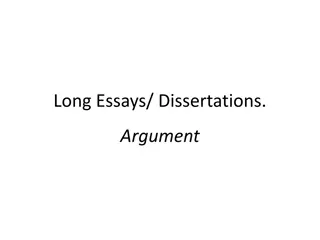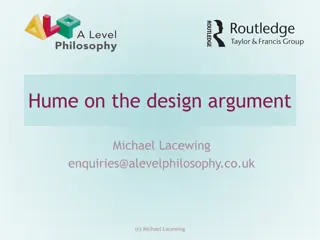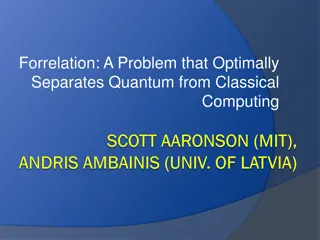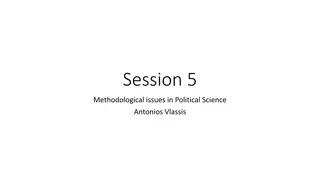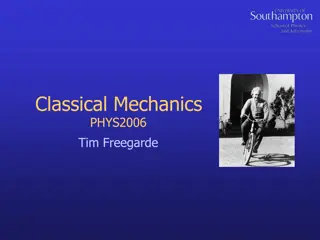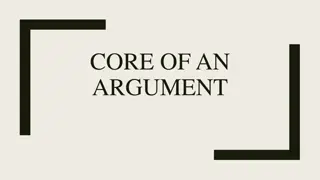Understanding the Five Parts of a Classical Argument
The classical argument is composed of five main parts: Introduction, Narration, Confirmation, Refutation and Concession, and Summation. Each part plays a crucial role in presenting a well-structured and persuasive argument, with devices and strategies such as diction, syntax, and figurative language enhancing the overall impact of the argument.
Download Presentation

Please find below an Image/Link to download the presentation.
The content on the website is provided AS IS for your information and personal use only. It may not be sold, licensed, or shared on other websites without obtaining consent from the author. Download presentation by click this link. If you encounter any issues during the download, it is possible that the publisher has removed the file from their server.
E N D
Presentation Transcript
The Five Parts of a Classical Argument Part 1: Introduction Warms up the audience Establishes goodwill and rapport with the readers Announces the general theme or thesis of the argument
Part 2: Narration Summarizes relevant background material Provides any information the audience needs to know about the environment and circumstances that produce the argument
Part 3: Confirmation Reveals, in a logical order (usually strongest to weakest or most obvious to most subtle), the claims that support the thesis Provides evidence for each claim
Part 4: Refutation and Concession Looks at opposing viewpoints to the writer s claims Anticipates objections from the audience Allows as much of the opposing viewpoints as possible without weakening the thesis
Part 5: Summation Provides a strong conclusion, amplifying the force of the argument Shows the readers that this solution is the best at meeting the circumstances.
Devices / Strategies Diction choice of words Syntax sentence structure Figurative Language / Rhetorical Strategies It is not enough to be able to identify these components in a text; one must be able to connect them to the meaning (purpose) and explain how they help the writer achieve that meaning.


